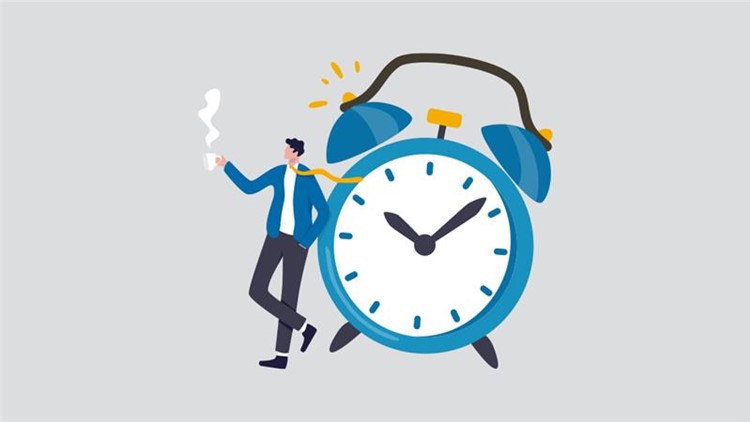IRS Operation Hours: How to Reach the IRS and What to Do When You Can't

How Tax Professionals Can Efficiently Communicate with the IRS
As a tax professional, navigating the IRS for client matters can be challenging—especially under tight deadlines or when standard processes don’t yield results. Whether you're looking to resolve a tax notice, follow up on a filing issue, or clarify complex tax questions, understanding how and when to communicate with the IRS is key to providing timely service to your clients.
In this updated guide, we outline the main ways tax professionals can contact the IRS, including operational hours, best practices, and alternatives when standard channels fall short.
Call the IRS During Business Hours: What Pros Need to Know
Phone communication remains a primary avenue for resolving client-specific issues. Here are the latest operating hours:
IRS Practitioner Priority Service (PPS)
-
866-860-4259: Available Monday–Friday, 8 a.m. to 8 p.m. local time
PPS is the go-to line for tax professionals with valid authorization (Form 2848 or 8821 on file) who need to resolve account-related issues.
General IRS Numbers for Reference:
-
Individuals: 800-829-1040, 7 a.m. – 7 p.m. local time
-
Businesses: 800-829-4933, 7 a.m. – 7 p.m. local time
-
Tax-Exempt Entities: 877-829-5500, 8 a.m. – 5 p.m. local time
-
Estate & Gift Taxes (Forms 706/709): 866-699-4083, 10 a.m. – 2 p.m. ET
-
Excise Taxes: 866-699-4096, 8 a.m. – 6 p.m. ET
-
International Callers: 267-941-1000 (not toll-free), 6 a.m. – 11 p.m. ET
Tip: For faster service, avoid peak call times — Mondays, Tuesdays, and lunch hours. Mid-week and mid-morning typically have lower call volumes.
Prep Before You Call
IRS agents generally require strict identity verification. As a preparer, make sure you have:
-
Valid authorization (Form 2848 or 8821)
-
Your CAF number
-
Your PTIN
-
The taxpayer’s:
-
Full name and SSN/ITIN
-
Tax year and tax form in question
-
Filing status
-
Prior-year return (for validation)
-
Any IRS correspondence related to the issue
-
If you're calling on behalf of a deceased taxpayer, bring documentation such as a death certificate, IRS Form 56, or court appointment documents.
Need forms from your clients? Plan ahead. Get our free client checklist to help make sure you have what you need from your clients ahead of the next tax season.
Know the IRS Wait Times
-
Filing season (Jan–Apr): IRS reports an average wait time of 3–4 minutes, though PPS may vary.
-
Post-filing season (May–Dec): Expect longer wait times—10–15 minutes or more depending on volume.
Tip: If your matter is urgent and unresolved through standard lines, escalate through the Taxpayer Advocate Service.
Visit a Local Taxpayer Assistance Center (TAC)
For complex or unresolved matters requiring in-person help, TACs are available by appointment. While TACs primarily serve individual taxpayers, preparers with proper documentation may attend with clients.
-
Standard hours: Monday–Friday, 8:30 a.m. – 4:30 p.m.
-
Extended hours during tax season: Many TACs stay open later on Tuesdays and Thursdays.
-
Select Saturday openings: Offered periodically in major cities—check irs.gov for updates.
To schedule: Call 844-545-5640
Bring:
-
Government-issued photo ID
-
IRS authorization (2848 or 8821)
-
Any relevant IRS letters or documents
IRS Tax Pro Account: Streamlined Digital Access
The IRS Tax Pro Account is designed to help practitioners manage authorizations and client accounts without phone calls or faxes. Through this secure online portal, you can:
-
Review authorization status
-
Access client transcripts (via e-Services)
-
Withdraw authorizations in real time
Requirements:
-
A valid CAF number assigned to you (not your firm)
-
U.S. address on file with the IRS
-
You must be eligible to practice before the IRS (EA, CPA, attorney, etc.)
When the IRS Isn't Responding: Taxpayer Advocate Service (TAS)
If you’ve exhausted standard communication methods and the issue remains unresolved—especially if it’s causing financial hardship for the client—contact TAS:
-
Phone: 877-777-4778
-
Find your local office: TAS Office Locator
-
Use Form 911 to formally request assistance
TAS is independent from the IRS and prioritizes unresolved cases that have stalled due to processing errors, hardship, or procedural delays.
Efficient communication with the IRS can be a critical part of delivering high-quality service to your clients.
By staying current on operating hour and planning ahead for call times or in-person visits, you can minimize delays and keep your clients’ cases on track.
If you’re prepared, authorized, and proactive, the IRS systems — while sometimes slow — can work in your favor.
For more tips about IRS communication and best practices for tax professionals, please subscribe to Taxing Subjects.
Read our next post, IRS Changes for Tax Professionals



